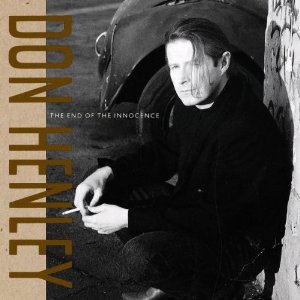A superstar’s childhood isn’t always a dream.
Don Henley – the golden voice of the Eagles – often appeared strong, independent, and fiercely talented. But behind the fame lay a quiet, aching memory of his childhood—a wound shaped by a stern and emotionally distant father. And when he couldn’t speak the words aloud, he chose to write a song instead: The End of the Innocence.

The End of the Innocence – When Music Becomes a Form of Healing
More than politics—it was a personal goodbye to a lost childhood
Released in 1989, The End of the Innocence is a poetic ballad that combines Bruce Hornsby’s wistful piano melodies with Henley’s smoky, reflective vocals. While many interpret the lyrics as a commentary on America’s sociopolitical shift, for Don Henley, it was much more personal.
In rare interviews, Henley admitted the song partly reflects his upbringing in Linden, Texas—a small town where his father ruled with discipline, silence, and stoicism. “I grew up in a world where boys had to be tough, not cry, not show weakness,” Henley once said. “But that took away my innocence.”
The song marks a turning point—that painful moment when a child realizes the adults they once idolized are flawed, human, and sometimes hurtful.
A Quiet Farewell to the Father He Never Understood
Henley wasn’t just singing about his father. He was speaking for an entire generation—sons raised to obey, not to feel; boys told to be strong, never soft. And yet, beneath the melancholy, there’s no anger. There’s only understanding… and release.
The End of the Innocence doesn’t scream—it whispers. And in that silence, it speaks for millions of people who grew up holding back tears, hiding heartbreak, and wishing their fathers had said, “I love you.”
👉 Suggested listening: The End of the Innocence – Don Henley (1989)

Don’t just listen with your ears—listen with your heart. You might hear the voice of a young boy, finally saying goodbye to the past.